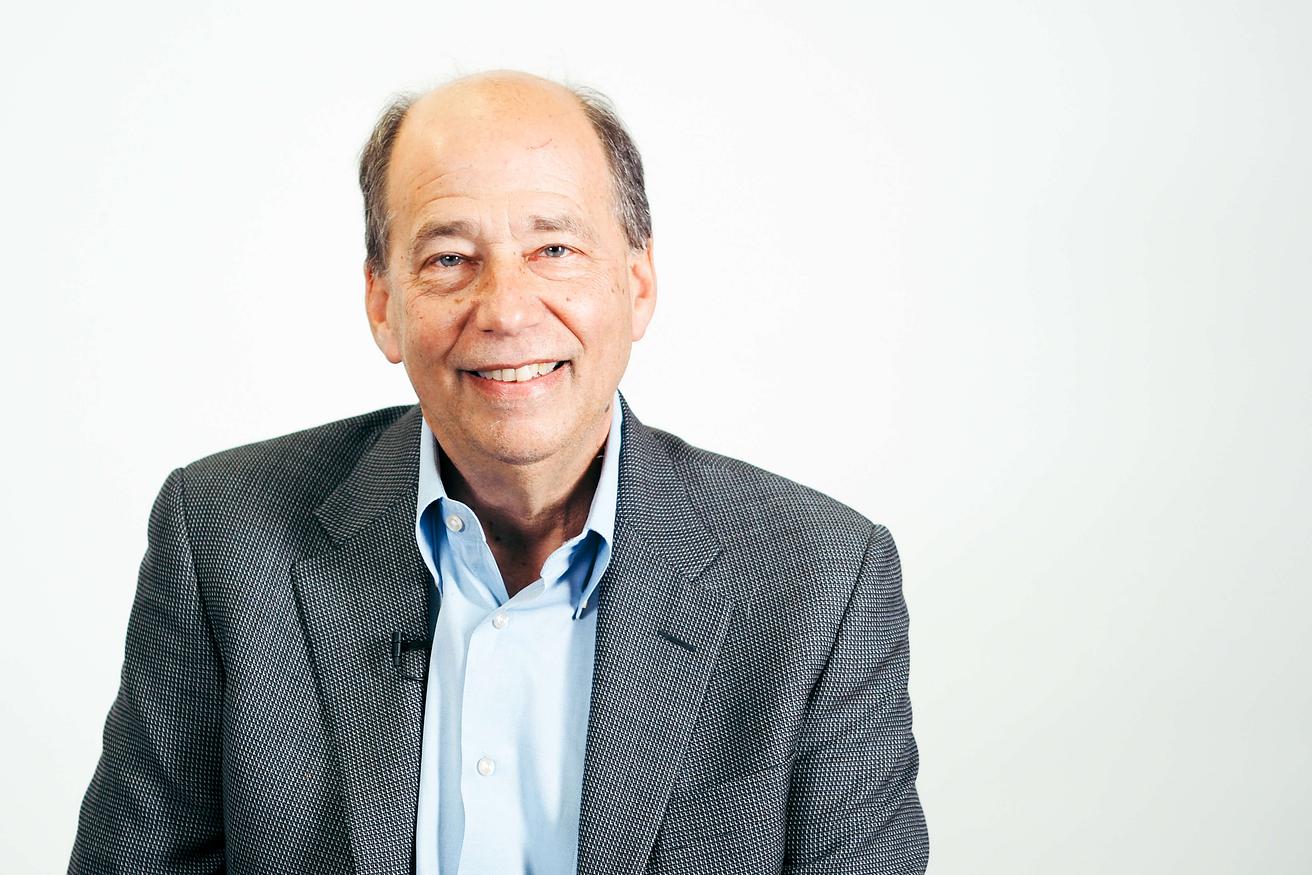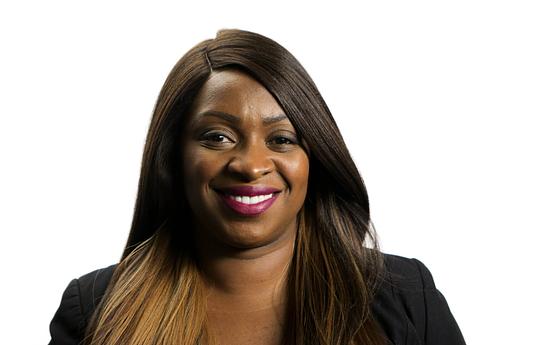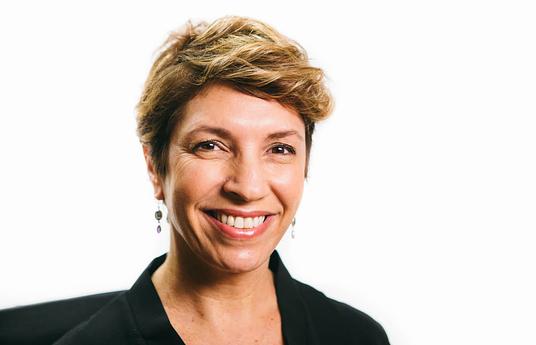Elliot Washor
Elliot Washor is the Co-Founder of Big Picture Learning and has been involved in school reform for over thirty-five years in various roles. In addition he has co-founded the Met Center in Rhode Island - a school that has been recognized as one of the most innovative models in education.
Skills
What are the skills we need to be teaching our children?
How to learn in or outside of school. The other skills follow, and come from what they have learnt and assessed in the many dilemmas they have faced in the outside world. We [Big Picture Learning] understand they are learning twenty-four seven, and so we try in someway to count the outside experiences inside of school.
It is also important for them to learn how to figure out who they are, where they fit in the world and to do work that really matters to them. To contribute in some way to the community that they live in and hopefully the world at large. Once they’ve learnt to do that, if you keep those bigger picture frames in mind, skills like literacy, numeracy and working in the disciplines of the sciences, arts and humanities all start falling into place by themselves.
As we know that everybody’s different, our approach is to take one student at a time within a community of learners, and to have a plan to manage and help facilitate each and every child’s learning.
How do you plan to manage and facilitate every child’s learning?
We start with the child and ask them: ‘What are you interested in and who are the people that you connect to around those interests?’ It’s not necessarily what do you want to be when you grow up, or what career do you want to have - no matter if it’s a three or twelve or seventeen year old.
It starts with those interests. Sometimes those interests come from traumas, sometimes because somebody in their family knows somebody who does something to do with those interests, or they’ve seen something on the internet that they are curious and want to know more about. Then they want to create something around that subject and want to do something with it, like some kind of venture or project, and this let’s the school know that there’s a motivation for this subject area. So then there’s things to read, things to do, people to meet around the development of those interests, whilst simultaneously being in a public school setting, with a curriculum and system that’s pretty archaic that we also have to manage with students.
Once we develop that trust and bond where students believe that what they tell us we’re going to act on, you develop a different culture in a school.
Teachers
What is the role of the teacher?
We call teachers ‘advisors’, they facilitate and manage learning. The important thing is to figure out how you make your way in the world and for the teacher to manage and facilitate that. They have expertise in content, but really they are connecting students with whom they want to become with texts, multimedia and the people in the real world who can get them there.
There’s a quote in the show the Wire where “Dukie” says to his mentor: ‘How do I get to the rest of the world from here?’ and his mentor says, ‘I don’t know.’ It’s that that limits our young people.
We know from the study work we’ve done over the course of fourteen years of our students graduating, that they graduated to and for colleges and they had all the academic skills, the twenty-first century skills, the social-emotional skills, but we found out that seventy percent of them had work in their LTI’s, what we call ‘learning through interests' or internships in their fields of interest. So they had all that, but they also had relationships. They built social capital and biologically we’re wired to build social capital and biologically we want to get better at the things that we want to get better at.
So if you put those two things together, starting with the students’ interests – connecting the things that matter to them and the people who know how to use those things, all of a sudden they can go deeper and learn more.
Assessment
Do you think standardized testing is an effective way to assess learning?
I’m never about one test, I’m about multiple measures. The law is that there’s standardized tests – do I think many of them are really good? No. Do I think they can be pretty negative? Yes, I do. Do I think they can take up a lot of unnecessary time? Yes.
I was with a group in California a few weeks ago and everybody was looking over a new type of testing, which would be much more performance-based but still a written test, or a portfolio-based test with lots of detail. And I said: ‘If all this stuff really matters to you, why don’t you hold off giving them diplomas, graduate all the kids and give them the test six months later and see how they do and give them the diploma, if that’s the information that counts - who really retained it and knows it?’ Everybody got kind of quiet and moved onto the next question.
So what does that tell us? To me it means the information is put, a lot of times, by people who are knowledgeable about that information and want everybody to be, but not everybody has to be. There are other things that you need to be able to do, so multiple measures where making a sculpture counts just as much as writing a paper. Well does it? Not really. To that person that may be the rest of their life as in what they do well. Yeah, they have to learn to read or write, but the readers and writers don’t seem to have to sculpt, so what’s that about? That’s cultural.
This is not just about cultural. This is us making or trying to help young people make themselves good people and us helping them along the way.
So standardized assessment, once again, is one measure - not the only measure. Multiple measures that really count where students and schools don’t keep two sets of books.
Environments
What would be the most exciting learning environment?
I’m kind of working on that. I’m working on places outside in communities now, like an Apple store where there’s a genius bar. There are these people who are navigators and young people are way-finders trying to find their way and they come in and help you connect to those things without the intrusion of all this other stuff that’s given to you in a scope in sequencing in ninety-five percent of schools. So these young people are coming in because they want to learn and productive learning is about wanting to learn. Once you have that peace, if you can make those connections to adults, to texts, to certifications and to other things so you can connect them to the right schools and the right services, it’s prevention rather than intervention and treatment. I think that’s a big piece.
Also big pieces, putting the person in personalization. Not just getting on the internet, but getting off the internet to actually meet people, because it is a whom you know world as well as what you know. The two go together and people have to form those kinds of bonds and relationships or else they’re not going to hire one another and work with one another effectively and well.
Nobody works alone. There’s no such thing as an agent who is just in their mind. Agents are out in the world, they touch things, they mess around with objects, the objects become them or they make the objects - these are really important things.
That's something that we especially should be learning from the Finnish system, where at any age young people in school are working with their hands, minds and hearts using metal, wood, textiles or clay, ceramics, that’s been going on forever there. I don’t know why we don’t talk about it, but it’s a very powerful form of learning that leads you from the concrete to the abstract and back to the concrete, and back to the abstract.
Some of the best mathematicians in the world are women who are weavers. The woman who invented Kevlar was a weaver when she was young. Somebody actually taught her how to weave. I don’t know who that person was, but that’s a relationship with something that you want to do. And that’s where it goes, but it starts there.
I went to a conference in Venice and the slogan was, ‘Think with your senses and feel with your mind’ which we don’t do very well. We have all these senses and they’re not used in school or given the emphasis that they deserve. That’s part of these learning environments. Can you smell it, taste it, touch it, feel it? Not just say it. You get fooled when the physical gets reduced to the mental and uncertainty gets reduced to certainty.
We want a lot of uncertainty. We don’t know everything and we want to have more understanding. The sooner we realize that, the better.
Leadership
What role do you think government should play in education?
Government play over-regulates the educational industry to the point where many times students leave because their personalities don’t match up with the regulations in place. The government wants everybody to be accountable, but not 'account-able.' To be 'account-able' you have to have more say and more voice and more creativity in an accountability system.
When you’re working in a school and with children you come to realise they are all different, they like and dislike different things. There are some things that they have to learn, or you try to say they have to learn. Sometimes most do and some really can’t.
And so there has to be those other things that are really important, but the government hasn’t really recognized those pieces that are really important around the crafts and the trades and how the crafts and trades impact the sciences and performing arts and vice versa. At the moment it is all about: can you read it, can you write it or can you say it, but that’s not not the only thing schools should be.
Personal memory
What was your favourite moment in your own education?
Well I was obstreperous, so I got into arguments and trouble, because I’m a little bit rebellious. The world needs some of those people too. I remember arguing with my fourth grade teacher that Pluto wasn’t a planet. My uncle, who had no education, used to take me to the Museum of Natural History. I met some astronomer and he explained to me in great detail that Pluto really wasn’t a planet. So I went to class and I said that and I got an F, but I wouldn’t change my mind. They just gave you F’s in those days and you would get into trouble, because ‘I told you this and you’re not listening’ and I said, ‘No, but this guy over here told me that and he knows more than you!’ That’s not a good argument to get into.
So that’s kind of an interesting moment, because I guess some people would say, he may have been right, that astronomer. I didn’t take everything at face value at school.
I wasn’t trying to get into trouble, I just got into trouble. I think a percentage of students say, ‘I didn’t do anything wrong,’ because they can’t help being much more tactile and unable to sit in their seat and wanting to move around. They’re asked ‘Are you paying attention?’ and are given a pill to make them act the same as everybody else. That’s the answer - make everybody the same. But we are not all the same.
The next 100 years
The next 100 years of Finnish education should… continue much of the great work you’ve been doing and get students out more - bring the outside of school in, and the inside of school out. When learning is really taking place, pay more attention to the interests of each and every child.
I think that there’s been great contributions from Finland, which are well appreciated. Tell the world about working with your hands, your heart and your head and that it’s all one.


